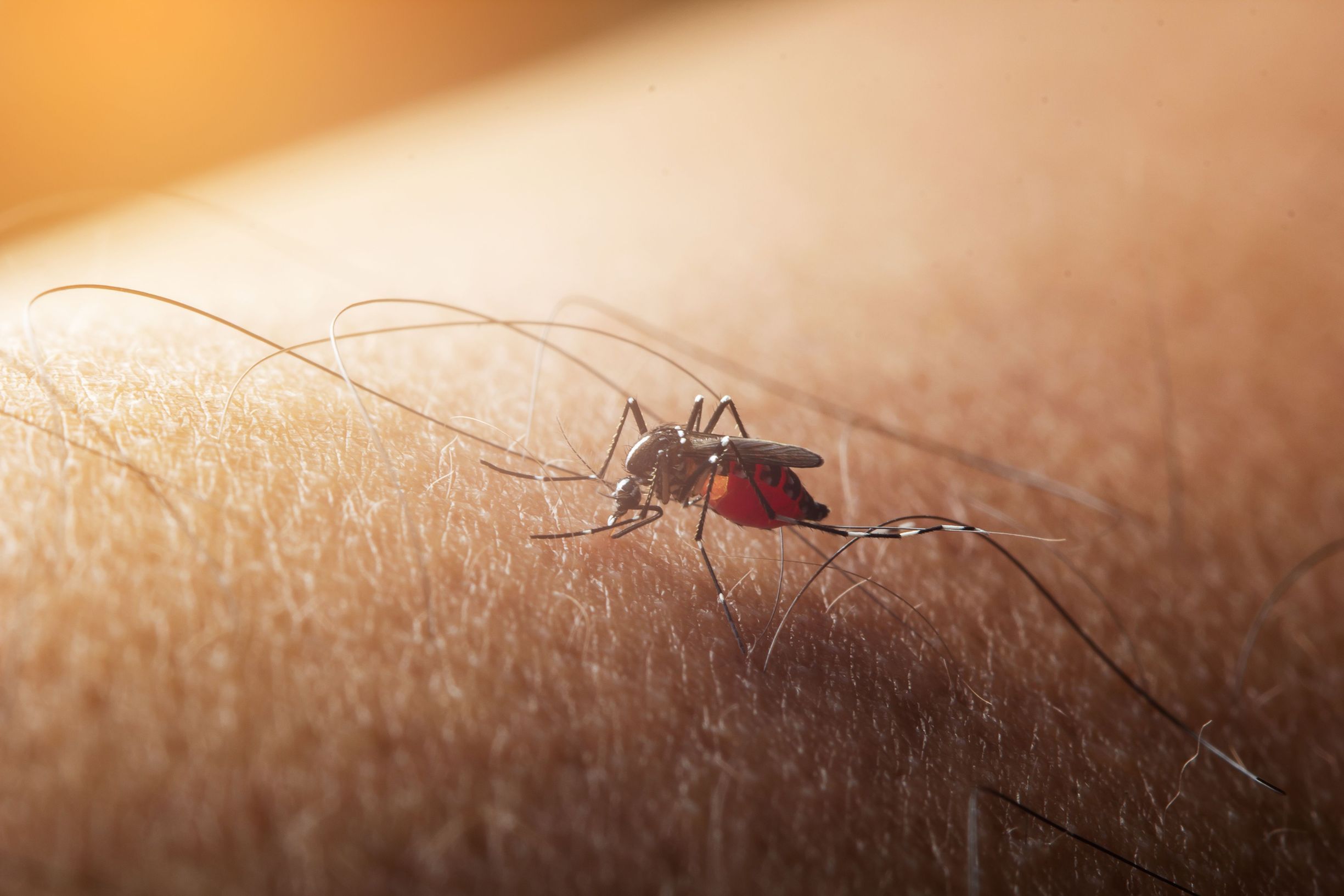
Mosquito on human skin
NYC Newswire,West Nile Virus NYC,Mosquito,5 Boroughs
Mosquito on human skin
Health Department Reports First Human Cases of West Nile Virus for 2025 Season
West Nile Virus Has Been Detected in Mosquitoes in All Five Boroughs; Two People with West Nile Virus Disease Have Been Reported
New Yorkers – Especially People 55 and Older and Those with Weakened Immune Systems – Should Take Precautions to Prevent Mosquito Bites
The Health Department today announced that West Nile virus disease has been reported in two New Yorkers, both residents of Queens. The virus has been detected in mosquito pools across all five boroughs since July. Mosquitoes infected with West Nile virus are typically present in New York City from May through October, with peak activity during August and September. Infected mosquitoes can spread West Nile virus to people through a bite. One individual was diagnosed with West Nile fever, was briefly hospitalized, and has since been discharged. The second individual was diagnosed with West Nile neuroinvasive disease and is currently hospitalized with encephalitis, an infection in the brain. In addition, the virus was detected in blood donations from two individuals, one a resident of Brooklyn the other of Staten Island. Recent reports of two more individuals (both from Brooklyn) with possible West Nile virus disease are under investigation.
“West Nile virus can cause serious illness, especially among people over 55 and with weakened immune systems,” said Acting Health Commissioner Dr. Michelle Morse. “The Health Department’s vector surveillance and control program helps identify and reduce our risk, but there are simple things you can do to protect yourself and your loved ones . Use an EPA-registered repellent and wear long sleeve shirts and pants — especially at dawn and dusk when mosquitoes that transmit the virus are active. Eliminate standing water so mosquitoes can’t breed, and make sure you have intact screens on your doors and windows. The virus has been detected in mosquitoes across the city — visit the online map.”
The Health Department routinely traps and tests mosquitoes from across New York City. Once trapped, up to 50 mosquitoes are batched together and tested as a single sample or “pool.” As of August 22, there have been 988 positive mosquito pools across the five boroughs this season, less than what was reported at this time last year. The Health Department is treating parts of the City with mosquito activity. Ten adulticiding spray operations, 3 aerial larvicidings, 2 rounds of catch basin larviciding, and 1,104 ground-based larvicidings have been completed to date.
Most people infected with West Nile virus have no symptoms though some may develop fever along with headache, muscle aches, rash, and extreme fatigue. While most patients infected with West Nile virus disease go on to fully recover, some continue to have health problems months after infection. In addition, about 1 in 150 people, especially those 55 years and older or with a weakened immune system, can develop a serious and potentially fatal illness of the brain and spinal cord called West Nile neuroinvasive disease, leading to changes in mental status and muscle weakness requiring hospitalization.
New Yorkers, especially those at increased risk for West Nile neuroinvasive disease, should use an EPA-approved mosquito repellent when outdoors to prevent mosquito bites. People with certain medical conditions or treatments that cause severe immunosuppression, such as chemotherapy and organ transplantation, are at greater risk of West Nile neuroinvasive disease and should consider avoiding going outdoors during dusk and dawn when mosquitoes that carry West Nile virus are active and bite. People with symptoms of West Nile virus should contact their health care provider.
West Nile virus was first detected in New York more than 25 years ago. From 2012 to 2021, an average of 16 people per year were diagnosed with West Nile neuroinvasive disease; from 2022 to 2024, the average increased to 31 people per year. Most New Yorkers diagnosed with West Nile virus report that they did not use repellent or take other precautions to prevent mosquito bites. New Yorkers should use repellent and offer it to their older neighbors and relatives.
New York City has more than 40 species of mosquitoes, but West Nile virus is transmitted primarily by several Culex species, including Culex pipiens, restuans, and salinarius.
Reducing Exposure to Mosquitoes
- Use an EPA-approved insect repellent containing picaridin, DEET, oil of lemon eucalyptus (not for children under three), or products that contain the active ingredient IR3535. Visit the EPA site to search by product and duration of effectiveness.
- Wear longs pants, long sleeve shirts, and socks, in addition to using repellent, especially during dawn and dusk.
- People with severely compromised immune systems should avoid going outdoors during dusk and dawn when mosquitoes that carry West Nile virus are active and bite.
- Make sure windows have screens. Repair or replace screens that have tears or holes.
- Eliminate any standing water from your property and dispose of containers that can collect water. Standing water is a violation of the New York City Health Code.
- Make sure roof gutters are clean and drained properly.
- Clean and chlorinate swimming pools and outdoor saunas and hot tubs. Keep them empty or covered if not in use. Drain water that collects in pool covers.
For more information about West Nile virus or to report standing water, visit NYC Health: West Nile Virus or call 311.








